Vikings ended with season 6, leaving a lasting impact on viewers, and here are 4 reasons why concluding the series then was absolutely necessary.
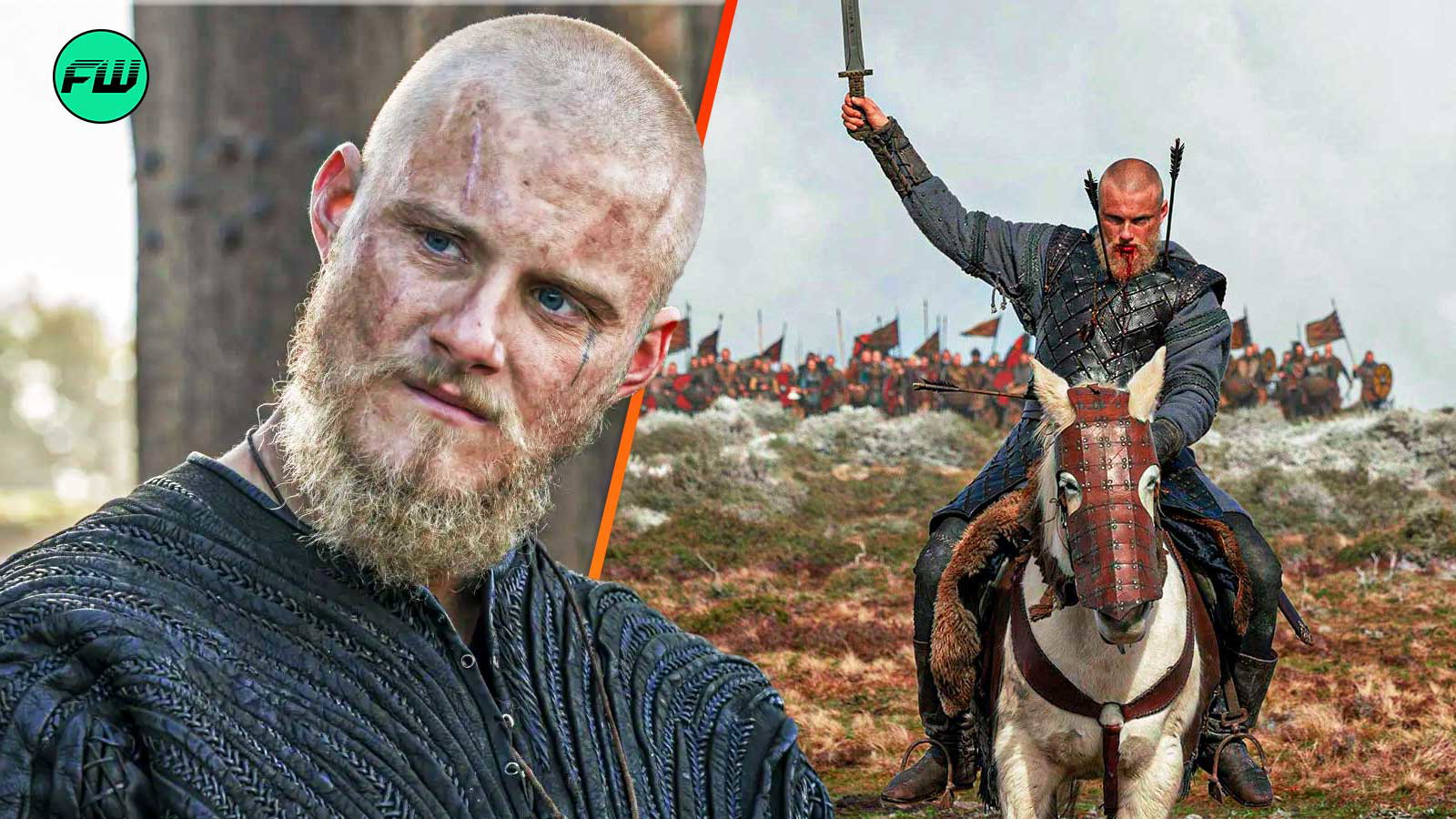
Though it started back in 2013 and raged on for six seasons till 2020, Vikings continues to be regarded as one of the greatest historical drama series of all time. Created, written, and tamed by Michael Hirst, it originally encompassed a story – which continued to span across decades – inspired by the legendary hero from Norse mythology, Ragnar Lodbrok.
A Viking, Ragnar is embodied perfectly by Travis Fimmel and is initially portrayed as a farmer from the Kattegat. But his ordinary storyline turns extraordinary when he rises to fame by carrying out victorious raids into the English territory before eventually transforming into a Scandinavian king with his family and fellow warriors’ support.
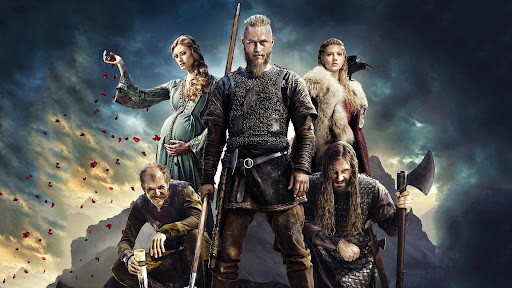 Vikings. | Credits: Netflix.
Vikings. | Credits: Netflix.
Going deeper into the storyline, later seasons of the historical fiction series originally aired on the History Channel continued to cover decades of generational conflicts and conquests by eventually focusing the plotlines on the fortunes of Ragnar’s sons and their fabled adventures around the globe in England, Scandinavia, Kyivan Rus’, the Mediterranean, and North America.
Of course, not only was this series generally and critically commended – it holds a 93% critical and 88% audience score on RT, for instance – but it was also a major commercial success. However, the action-war drama didn’t go for longer than 6 seasons / 89 episodes despite its triumphant success, and this was, perhaps, one of the best decisions taken by Hirst for the same.
Here are 4 genuinely valid reasons why Vikings bidding the screens farewell with an epic ending in season 6 was just what the series needed to leave an impact on viewers without sounding like the franchise was being milked a bit too much. Without further ado, let’s dig in!
4 Reasons Why Vikings Needed to be Ended by Season 6
1. Michael Hirst Had a Clear Story Arc Set for Vikings From the Beginning
 A still from Vikings. | Credits: Netflix.
A still from Vikings. | Credits: Netflix.
When Michael Hirst initially pitched the series to History, he knew just what he was doing. Not only did he have the perfect idea of how he wanted to kickstart this journey set in Norse mythology, but he also knew right from the start how he wanted the show to end.
In an interview with Inc., the screenwriter cum producer confessed the same, saying, “I always knew how I wanted the show to end. I told HISTORY when we first pitched the show how I wanted it to end.” While he didn’t know how the journey would advance in the beginning, he understood that season 6 was the time he and the characters bid farewell to the screens.
As Hirst added during the same interview, “I do believe strongly that the ending of my Vikings is emotionally and intellectually satisfying. The audience and me, we’ve been on a long journey together… and I had no intention of cheating either them or myself.”
With all of this being out there, the show creator inevitably had a clear story arc embedded in his mind right from the beginning on how he wanted his star-studded show to end. Plus, adding further content would have made it feel like they were just milking the lore. That said, this is enough reason to justify why the Travis Fimmel-starrer saga didn’t need to go any longer than it already did.
2. Going Beyond Season 6 Would Have Meddled with the Show’s Historical Accuracy
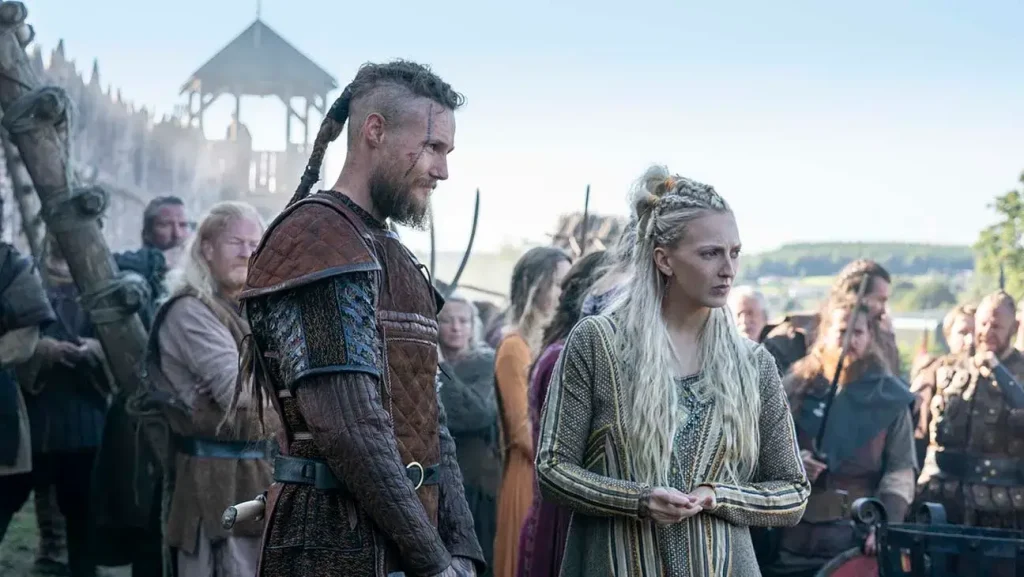 A still from Vikings. | Credits: Netflix.
A still from Vikings. | Credits: Netflix.
While Hirst’s reasoning of already having the perfect end in mind is one thing, going beyond season 6 just for the sake of entertainment and popularity would have unarguably ended up meddling with the show’s historical accuracy. As fans already know and would agree, one thing that made Vikings stand out and added to its fame was the (mostly) accurately depicted history through it all.
In an interview with History Extra, the show creator himself emphasized the series’ plausibility while pointing out that he’s “not writing fantasy” and “can’t just make it up – it has to seem real.” That said, by the time they were nearing season 6, the storyline was inevitably drifting closer to the end of the Viking Age, even as it focused more on Ragnar’s sons and their fabled adventures.
That being said, had they decided to go further, the series inspired by the tales of the Norsemen of early medieval Scandinavia would have simply felt like it was being stretched without precision. To say it in layman’s terms, had Hirst decided on curating further storylines that didn’t go hand in hand with the truth would have seriously tampered with the saga’s historical accuracy.
3. Season 6 Gave the Perfect Character Development Closure Fans Needed
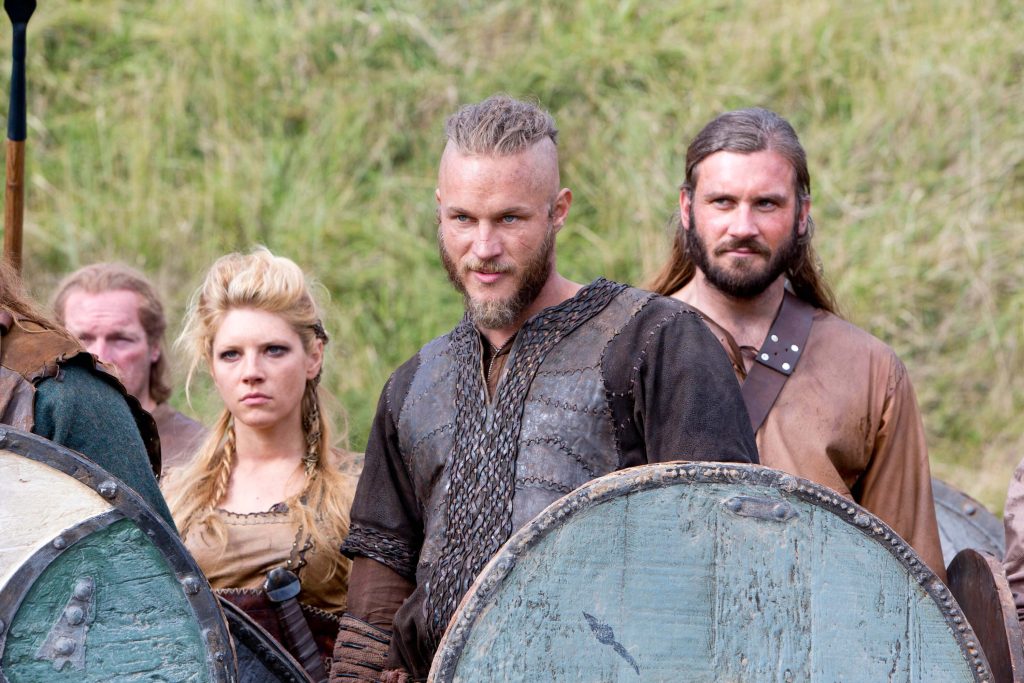 A still from Vikings. | Credits: Netflix.
A still from Vikings. | Credits: Netflix.
One of the biggest reasons why Vikings ending at season 6 was as epic as it was is because it provided the perfect character development and a satisfying closure arc to the fan-favorite characters of the saga. Here are some of the character arcs to prove the same:
Bjorn Ironside’s (Alexander Ludwig) death, for one, struck shockingly and devastatingly, but also rather fittingly as he died protecting his people. Not only did Bjorn go from a troubled prince to a wise leader but he also found his true purpose, with his death eventually serving as the accurate arc since he died fulfilling his destiny.
Then there was Ivar the Boneless (Alex Høgh Andersen), whose complex storyline evolved from being a vulnerable outcast to a ruthless leader before he ultimately faced the consequences of his actions as he met his death at the hands of his own adopted son Igor – an event of rather poetic justice.
Similarly, Lagertha (Katheryn Winnick) also found peace and redemption in the end as she let go of her warrior persona. Her death, though tragic, was also peaceful as she passed on her knowledge and legacy to Gyda, ensuring that her story lived on for ages to come.
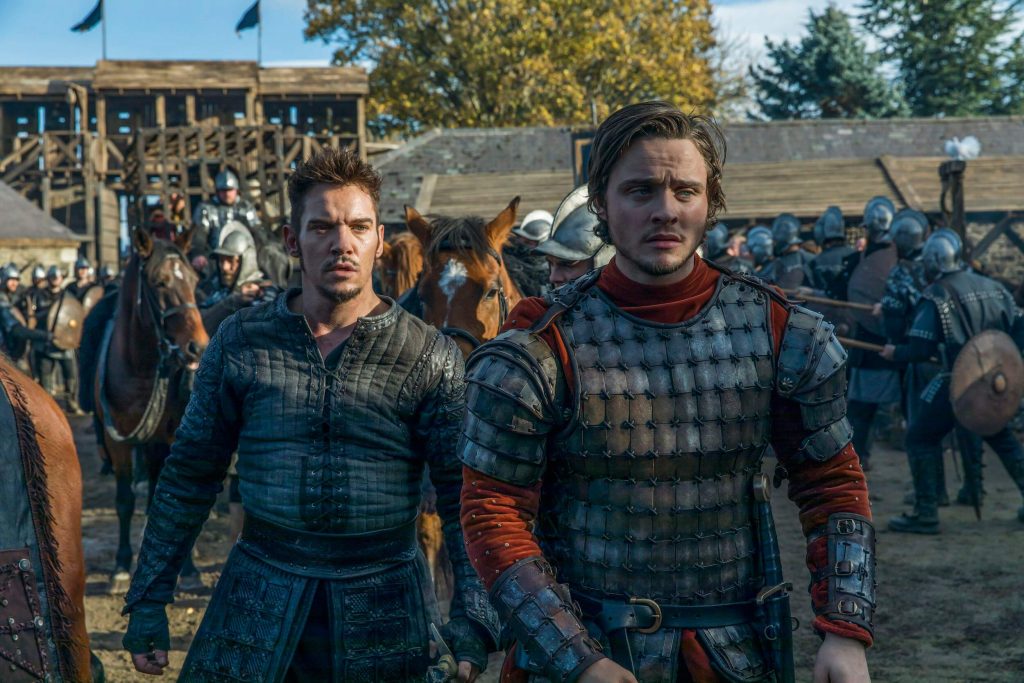 A still from Vikings. | Credits: Netflix.
A still from Vikings. | Credits: Netflix.
Torvi (Jessalyn Gilsig), on the other hand, went from a timid wife to a strong, independent leader, with her reunion with Bjorn’s family. Fans also found Katia’s (Alicia Agneson) mysterious character evolving into a complex, multidimensional personality. Though her tragic death served as a reminder of the cruel Viking world, her legacy lived on through her son.
Meanwhile, Ubbe’s (Jordan Patrick Smith) journey went from a lost soul to a determined leader, concluding with him finding his true purpose in exploring the New World. His departure from Kattegat, though bittersweet, marked a new beginning as well, as he set sail for North America to embark on a fresh (yet unarguably violent) adventure.
Last but none the least, Harald Finehair (Peter Franzén). Like many others, his arc also saw him transforming from a power-hungry king to a wise, humbled leader. Harald eventually found redemption through his death, which was – though unexpected – rather fitting as well, as he died protecting his people and his kingdom like a true king.
All of these character arcs serve as further reminders that Michael Hirst knew just what he was doing when he decided to put an end to this Norse show by season 6. And even fans won’t be able to deny that these arcs and their closure-providing conclusions were as fitting as could be.
4. Ending Vikings at Season 6 Paved the Way for a Creative Renewal
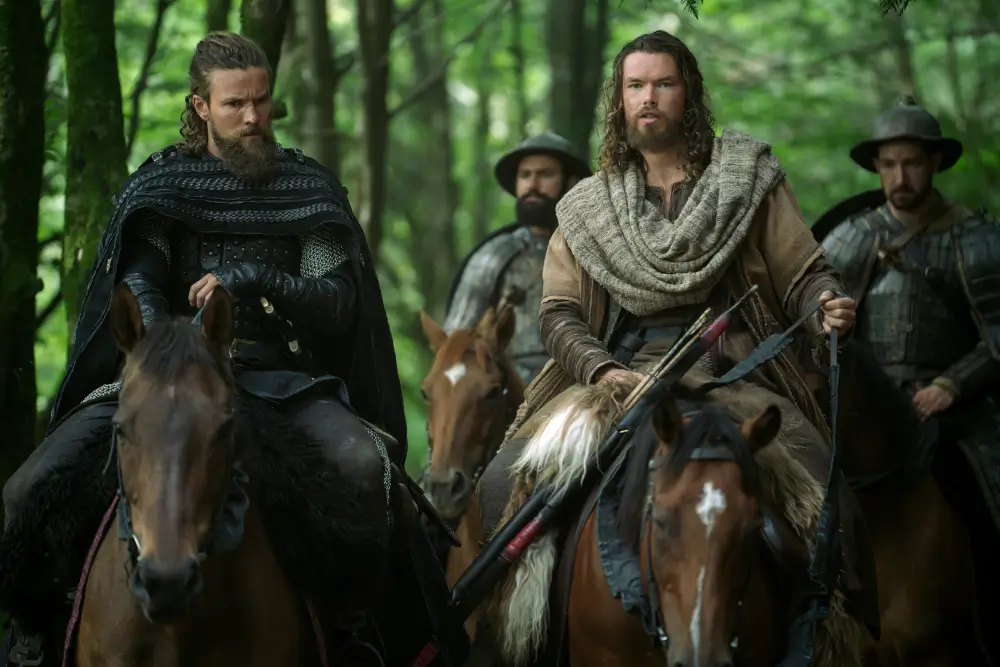 A still from Vikings: Valhalla. | Credits: Netflix.
A still from Vikings: Valhalla. | Credits: Netflix.
Lastly, ending Vikings with season 6 allowed the creator to develop a new continuing saga without compromising on the emotional resonance of the original series. Vikings: Valhalla, which started in 2022 and ended earlier this year with its third season, offered a fresh perspective on the Viking world than the one depicted previously.
Allowing new storylines to bud in a different saga eliminated the chances of the original series having repetitive plotlines, decreased quality, character stagnation, and overall overstretched storylines and instead enabled Hirst to explore new stories and characters while maintaining creative momentum. All of this had him staying true to the show’s core values as well.
With all of this being put out there, we’re sure no other additional reminders or justifications need to be made to further emphasize just why Vikings needed to be ended the way it did and Michael Hirst really put his creative liberty to good use by deciding to give a satisfying conclusive end rather than deciding to just abruptly terminate it after milking the lore for a few more seasons.

